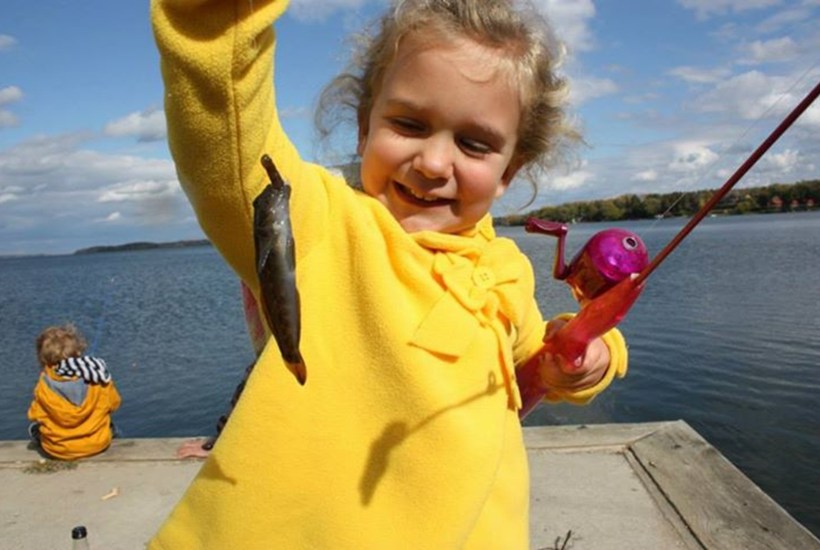A New South Wales government proposal to construct marine parks across recreational fishing areas has caused outrage amongst the state’s recreational fishing community and raised concerns about the environmental grounds used to justify nanny state intrusions into responsible and regulated recreational fishing.
The proposal from NSW premier Gladys Berejiklian is backed by MLC Niall Blair and MPs Gabrielle Upton and Bruce Noteley-Smith. It will see twenty-five sites along the NSW coast, including the Hawkesbury Shelf Marine Bioregion, marked as sanctuary zones, conservation zones and special area zones. This will effectively lock out anglers from popular fishing spots.
The backlash has forced a wave of once apolitical fishermen and women to turn to social media and their local fishermen clubs in the face of a state government which never consulted them about their concerns. A Facebook group called ‘Stop The Lockout!’ was started by recreational anglers and spearfishermen and managed to gain over 16,000 members within a few days of its existence.
According to Central Coast Sealions fishing club member, Alex Hamilton, 1280 hectares of fishing area will become off-limits for recreational and commercial fishermen. This is tantamount to approximately half the grounds that the club currently has access to. Aside from fishermen, Hamilton notes that the ban will affect a wide range of stakeholders including residents and charter boat operators. Many would lose businesses, and consequently. a source of livelihood.
Last week, a Facebook post publicising the proposal on the NSW premier’s page was inundated with fervent objections from many in the fishing community. Some have argued that when managed appropriately, spearfishing is one of the most sustainable and environmentally friendly methods of farming.
The Australian Fishing Trade Association and the Recreational Fishing Alliance of NSW have also expressed dismay at the NSW Government’s plan for a marine park and its restriction of public angling on 25 sites between Newcastle and Wollongong. They have urged the NSW Government and the NSW Marine Estate Management Authority to rethink the plan to ensure ongoing access to waterways for NSW recreational anglers. Doubts have also been raised about the “new scientific evidence” that the authorities have mentioned justifying the proposal, in light of evidence that regulated and responsible fishing does not impinge upon conservation concerns.
A study on the effects of spearfishing on reef fish populations in multi-use conservation areas reveals that spearfishing leaves minimal waste and disruption to the local environment and fish can be selectively taken without the risk of being undersized or from a protected species. The study recommended that adjusting output controls such as catch-limits, size and species can be implemented overnight and have proved successful at restoring species to Sydney’s reefs. Contrary to the marine park proposal, the study showed that prohibiting spearfishing altogether was unnecessary and would affect the cultural and social importance of the activity in coastal communities. The AFTA and the RFA have also pointed to other approaches the government could take in managing the health of the reefs. They have argued that compared to recreational fishing, processes such as pollution, foreshore development and sewage outfall are a greater threat to the marine environment. Pollution intoxicates the waterways, especially run-off from urban drains and sewage.
Marine sanctuaries and marine parks are not immune from pollution, stormwater run-off, microplastics and introduced pest species. All these are far more devastating than well-regulated recreational fishing. Sydney Water is still pumping toxic sewage into the ocean through deep-water ocean outfalls and allowing untreated urban drain overflow into many locations within the Harbour.
The AFTA and RFA have called for the government to work with recreational anglers to develop cooperative management of marine resources such as effective bag and size limits and seasonal closures in fish breeding seasons – something already welcomes by anglers. They have also suggested increasing the monitoring, enforcement of regulations and penalties that affect the marine environment, including pollution, habitat destruction and loss of public access rights.
If the government gets its way, money will be thrown into the costly and futile construction and maintenance of marine parks while both the fishing community and taxpayers will suffer. For now, the fishing community can only hope their activism efforts and submissions won’t fall on deaf ears in the face of the nanny state machine.
Anjali Nadaradjane is a Research Associate with the Australian Taxpayers’ Alliance.
Got something to add? Join the discussion and comment below.
Got something to add? Join the discussion and comment below.
Get 10 issues for just $10
Subscribe to The Spectator Australia today for the next 10 magazine issues, plus full online access, for just $10.


























Comments
Don't miss out
Join the conversation with other Spectator Australia readers. Subscribe to leave a comment.
SUBSCRIBEAlready a subscriber? Log in